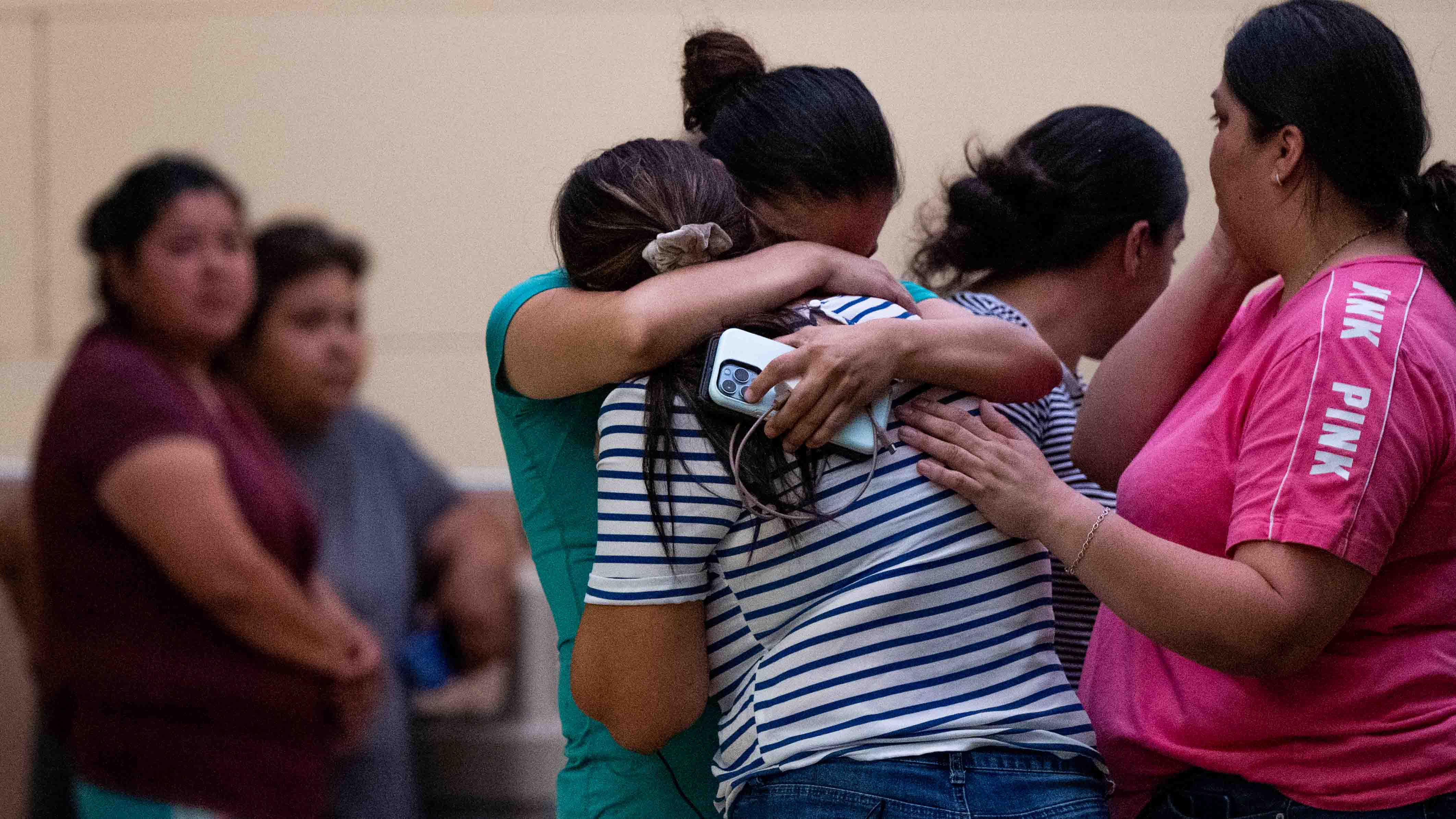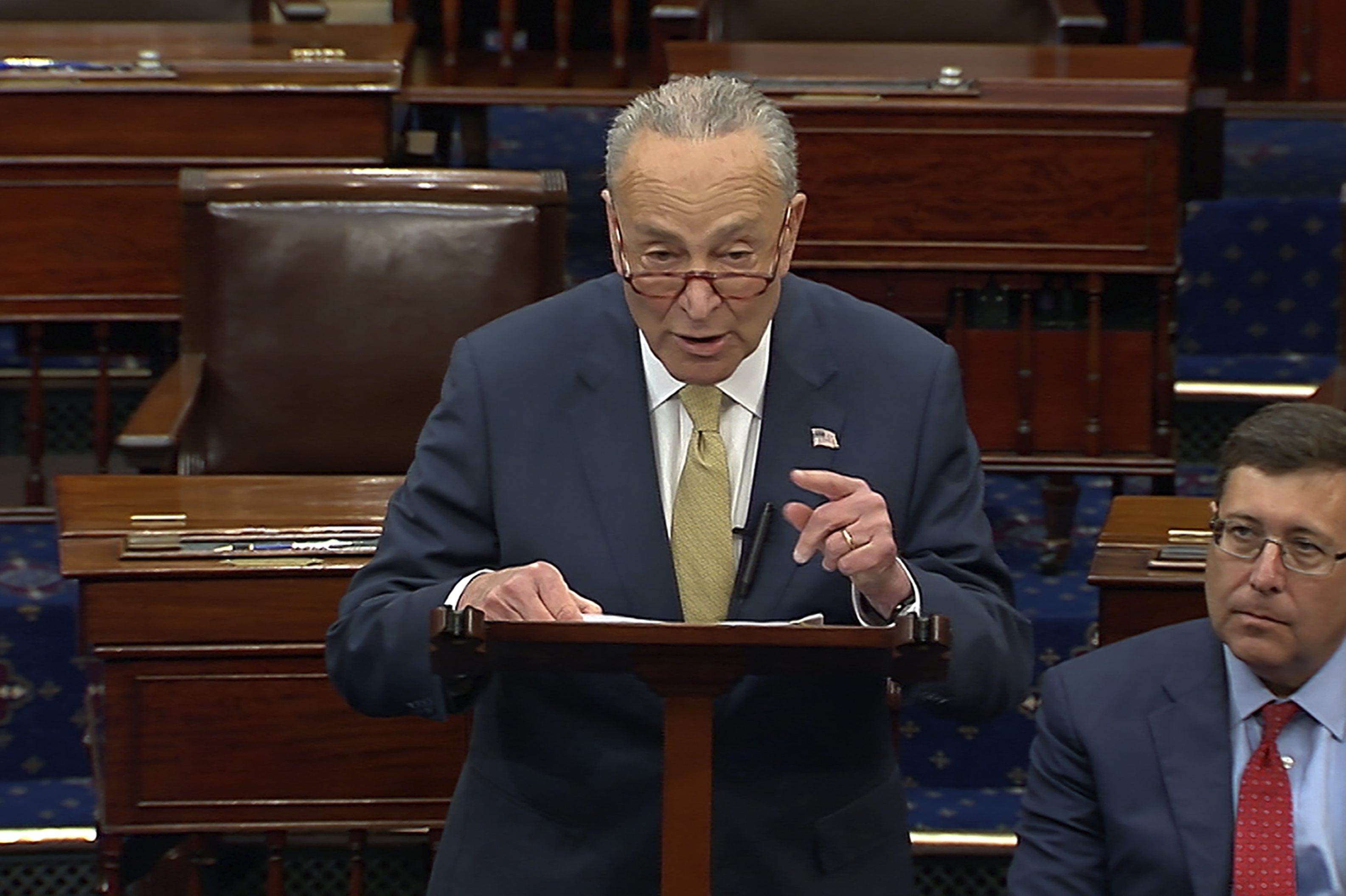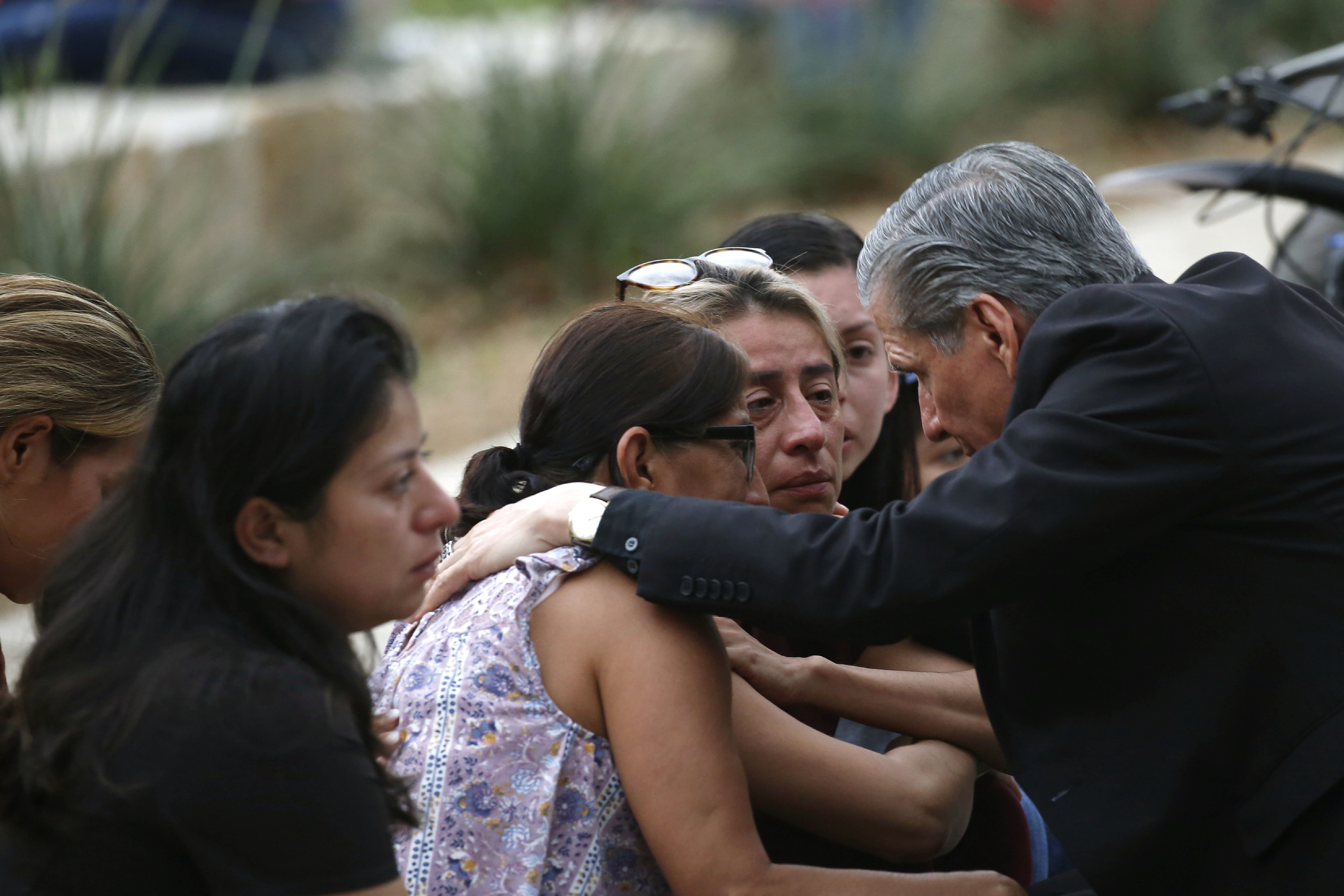On Tuesday, 21 people were shot and killed at an elementary school in Uvalde, Texas, including 19 children.
As the nation grapples with grief and anger after the second-deadliest school shooting in American history, parents and teachers are facing another difficult task: explaining the shooting to their children.
"[It's] just heartbreaking," said Becky Chuen, parent to a first grade student in South Pasadena. "It brought me to tears. I can’t believe it’s happening again."
But as heartbreaking as it is -- talking about the tragedy isn't easy.
Get top local stories in Southern California delivered to you every morning. >Sign up for NBC LA's News Headlines newsletter.
"I haven’t had any conversations with my first grader, only because he’s still a little too young to understand what’s going on," Chuen said.
It's the kind of tragedy so monumental that no one knows the perfect way to handle the situation. What's appropriate, and what isn't? Here's what experts say might help you and your children.
Tailor the Message Based on Age
Experts agree that it doesn't matter how old your child is; the message needs to be age appropriate.
For preschoolers and kindergarteners, keep it simple. A one-sentence story may be enough to explain what's going on.
For elementary school-aged kids, shield them from news coverage. The images they see may be upsetting, and they may stick with your child.
For tweens, start the conversation by asking how they feel about it. Then listen to what they say, and what their feelings are.
Expect teenagers to look for solutions, and to perhaps challenge you about what you're doing in the face of the situation. Parents are advised to be empathetic, and listen to their child. Ask what you and your teenager can do together.
And no matter how old your child is, it's important to remember that it's okay to be honest with them about how upsetting it is.
In 2012, when the Sandy Hook Elementary School shooting occurred, David Schonfeld -- a pediatrician and director of the National Center for School Crisis and Bereavement at Cincinnati Children's Hospital Medical Center, at the time -- said if your child asks why someone would do something like this, it's OK to say you don't know.
"I wouldn't provide false reassurance or dismiss legitimate concerns," he said. "We don't help children by telling them they shouldn't be afraid of things that are frightening."
Watch for Signs of Stress
"When a child undergoes stress, especially for younger kiddos, they oftentimes don’t have the words to express what they're feeling so they might internalize some of that stress and we know stress has an impact on our bodies," clinical psychologist Dr. Natalie Alexis said.
Stress can bring about stomachaches, headaches and trouble sleeping for young children, according to Alexis, if they aren't able to process their emotions.
According to the National Alliance on Mental Health, excessive stress or early mental health issues can "also look like a personality change."
"For example, if your child is typically socially interactive, but begins to withdraw and has no interest in others, this could be an indicator of an underlying mental health issue," the mental health organization says on its website.
Specific symptoms of prolonged stress after something traumatic may include:
- Disturbances in memory issues, such as flashbacks
- Recurrent thoughts of the trauma
- Emotional numbing, such as avoiding social and emotional contact with others
- The emergence of a hyper-state of arousal, like they might panic at any time
Experts say watching for signs, and then asking open ended questions that let your child know they can talk to you, can help start that conversation and let your child discuss what's worrying them.
Take Care of Yourself, Too
Research shows that in difficult situations, it’s often parents who are more anxious than their children. Parents should manage their own emotions as well.
"Kids will pick up on the fact that adults around them feel uncomfortable and something is unsafe and that will trigger a child’s anxiety more than just seeing something on the news," Dr. Rachel Merson, the clinical director of the Child Adolescent Fear and Anxiety Treatment program at Boston University, said.
Here is a list of mental health resources in Southern California.




